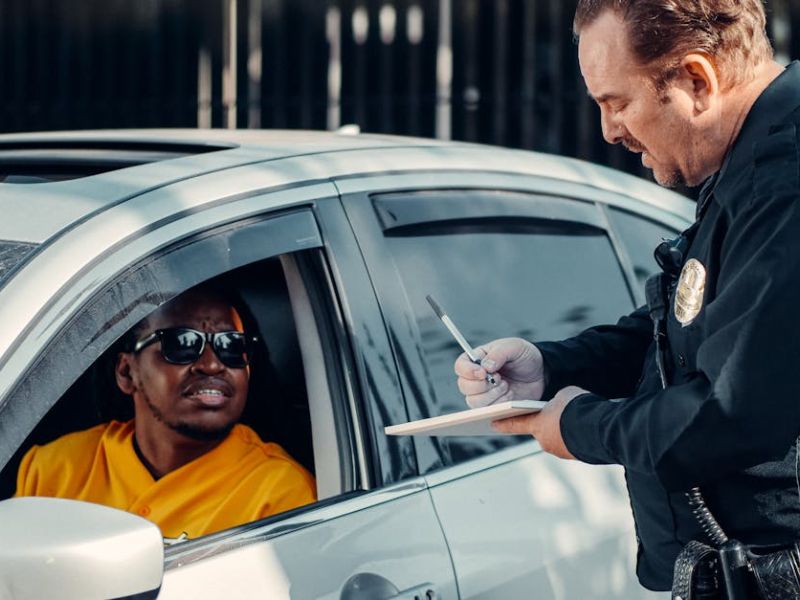
— Reckless Driving, Speeding
What to Do If You Get a Speeding Ticket on Route 13 in Virginia
Ever been caught off guard by those flashing blue and red lights in your rearview mirror while cruising down Route 13 in Virginia? We’ve all been there, and we know how quickly a simple drive can turn into a stressful ordeal. But don’t panic! We’re here to guide you through the process of what to do if you get a speeding ticket on this notorious stretch of road.
Understanding the laws and knowing your rights can make a world of difference when dealing with a speeding ticket. So buckle up as we navigate the ins and outs of Virginia’s traffic laws, offering advice to help you take control of the situation. Remember, a speeding ticket isn’t the end of the road—it’s just a speed bump along the way.
Understanding Speed Limits on Route 13 in Virginia
Virginia’s Route 13 abides by the state’s speed limit laws, which generally stipulate a limit of 55-70 mph on highways, dropping to 25-35 mph in business or residential areas. The limits represent maximum speed during optimal conditions, and drivers should slow down in poor weather or road conditions. Particularly on Route 13, the speed limit is primarily 55-60 mph, but can decrease to 25 mph in town areas like Exmore. Awareness and adherence to these limits help avoid penalties such as speeding tickets.
Receiving a Speeding Ticket
Speeding tickets are unfortunately common on Route 13 in Virginia, making knowledge of the process and consequences essential for any driver.
How Speeding Tickets are Issued
On Route 13, as in most of Virginia, speeding tickets are most often issued by law enforcement officers who’ve clocked a driver’s speed using radar or LIDAR devices. These gadgets accurately measure a vehicle’s speed, providing clear evidence for the officer to issue a ticket. An officer can also issue a ticket based on pacing your vehicle, particularly if the speed exceeds the posted limit by a substantial amount. Remember, remaining civil during the interaction increases the likelihood of a positive outcome.
Consequences of a Speeding Ticket
Upon receiving a speeding ticket in Virginia, a driver faces both immediate and long-term consequences. Immediately, there’s a fine that varies depending on the speed over the limit, with fines typically starting at around $6 per mile over. Additional court costs could increase the total significantly. In the long term, drivers accumulate demerit points on their driving record, potentially causing insurance rates to rise and licenses to be suspended or revoked based on the severity of the offense or repeated violations. Delinquency in paying the fine can even lead to license suspension.
Legal Response to a Speeding Ticket on Route 13
The intricacies of dealing with a speeding ticket on Route 13 involve understanding when to contest the ticket and knowing how to attain legal assistance if needed. An informed approach is your optimal path to handling this predicament.
When to Contest the Speeding Ticket
Disputing a speeding ticket isn’t always warranted; hence, discerning the best course of action is vital. Contest the ticket if there’s a factual error, such as a wrong traffic code or inaccurate vehicle description. Another reason is suspecting an error in the officer’s speed measurement, such as a radar device malfunction. You might also consider contesting if you believe it’ll lead to severe consequences like license suspension due to prior offenses.
How to Contact an Attorney
Contacting an attorney for legal counsel can be elemental in your defense strategy. Begin by conducting local attorney searches, using online directories like the Virginia Bar Association’s list, or acquiring referrals from individuals previously in similar situations. Check for attorneys specializing in traffic laws; this can be crucial considering the particularity of such cases. Contact potential attorneys via phone or email. Ensure to summarize your case succinctly for valuable initial feedback.
Navigating Virginia’s Speeding Ticket Process
Getting a speeding ticket on Route 13 can be challenging, but understanding the process helps.
Steps to Take After Receiving a Ticket:
- Document the incident and check for errors on the ticket.
- Pay the fine promptly (if not contesting) to avoid further penalties like license suspension.
- Consult a traffic attorney for expert advice and potential defense.
Preparing for a Court Hearing:
- Gather evidence and know the speed limit in the area.
- Maintain a clean driving record for a better outcome.
- Rely on an attorney to help reduce or dismiss charges.
- Dress appropriately and be punctual for court.
Prevention and Safe Driving
Preventing speeding tickets requires safe and attentive driving, particularly on Route 13 in Virginia due to its changing speed limits. Following the legal speed limits, practicing defensive driving, being aware of changing conditions, and regularly checking your speedometer is crucial. Town areas like Exmore often change their speed limits. For additional safety information, the Virginia Department of Motor Vehicles and the Virginia Highway Safety Office can provide valuable resources, traffic laws, and safety education. The AAA also offers defensive driving courses to encourage road safety compliance.
Conclusion
In summary, receiving a speeding ticket on Route 13 in Virginia can be a stressful experience, but understanding the laws, your rights, and the steps to take can make all the difference. We’ve walked through the key aspects—from speed limits and how tickets are issued to the potential consequences and how to prepare for a court hearing. We’ve also emphasized the importance of safe driving to avoid future tickets.
Navigating this process with the right legal support is essential, especially when the stakes are high. If you’ve received a speeding ticket or are facing other traffic violations, let the experienced team at Driving Defense Law guide you through it. Our attorneys are here to protect your rights and help you achieve the best possible outcome. Contact us today for expert legal assistance and take control of your driving record!

